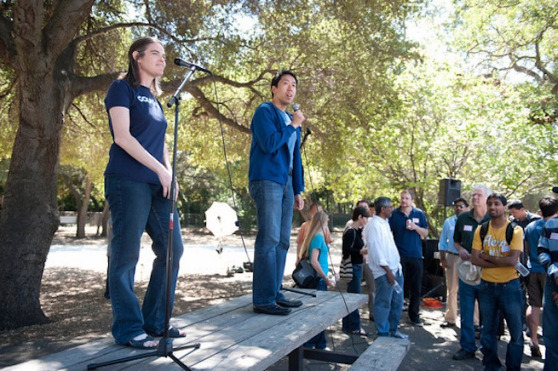Coursera has inked a partnership deal with the Carlos Slim Foundation to bring high-quality and affordable online courses to Latin America.
The news was announced at a press conference in Mexico City by Carlos Slim, a Mexican business magnate and philanthropist, and Coursera cofounder Daphne Koller. The pair expressed their shared goal to improve access to high-quality content in Spanish.
“Through online education, Coursera is making courses available to millions of people, instead of only to a small number of students. Job markets currently demand people that are highly trained and that engage in continuous education,” a spokesperson from the Carlos Slim Foundation wrote to me.
The goal is to translate 50 English-language courses into Spanish by the end of the year. The foundation is currently partnered up with Mexico National University and Tecnológico de Monterrey to make more original Spanish-language courses available.
You have to hand it to Coursera, the rising star of the online education space. The Palo Alto, Calif.-based startup is actually making good on its promise to bring high-quality education to millions of students in emerging nations. Since it launched in 2012, Coursera has seen rapid adoption of its free and cheap video courses from lecturers at elite universities like Stanford, Northwestern, and Yale.
When Coursera raised a massive $43 million round in July of 2013, Koller stressed her commitment to students in the developing world, who have limited access to education. Koller is particularly passionate about creating online learning opportunities for young girls.
Coursera has been making headway in Africa, Europe and Latin America. In October, the startup announced that it would open up dozens of co-working spaces — dubbed “Learning Hubs” — in cities around the world. Many people in rural and poor communities don’t have reliable Wi-Fi access, which is a huge problem for online education providers. The Learning Hubs offer high-speed broadband Internet, and typically reside on university campuses or embassies.
The partnership with the Carlos Slim Foundation is another important step. It will help Coursera market its online courses to the poorest people who are most in need. According to the foundation, the online courses offered through Coursera’s website and mobile apps will help students master relevant job skills and gain employment.
“Some of the areas we will be working on include computer science, finance, medicine and public health. Also, the Carlos Slim Foundation is interested in making specialization courses available in Spanish, that can help students acquire tools that can provide a competitive advantage in the job market; tools such as communication skills, leadership and problem analysis,” a spokesperson explained.
“This partnership will help students develop skills in critical, fast-growing employment sectors in Latin America to make an impact on their lives and their communities,” said Koller in a statement.
In the Middle East, Queen Rania’s Foundation has also invested in the online education trend. As I reported in November of 2013, foundation announced the formation of a new Arabic online education service called Edraak. Both foundations are seeking out partnerships with local universities in order to build interactive courses from scratch.


